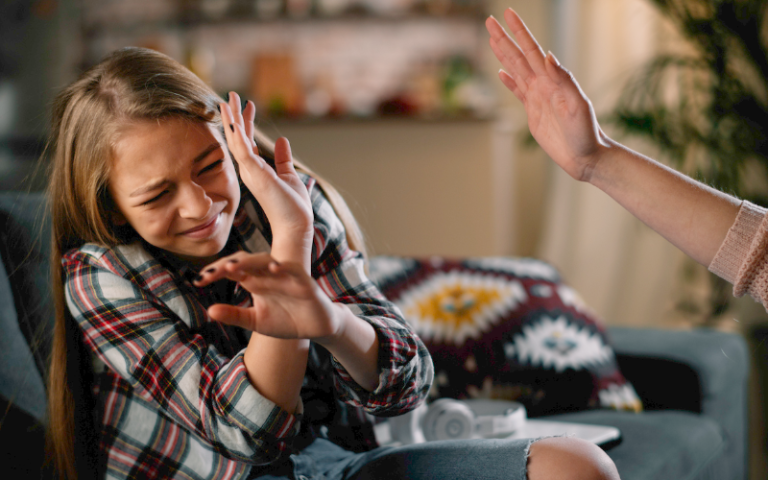One in five 10-year-olds experience physical punishment
1 May 2024
More than one in five 10-year-olds experienced physical punishment in 2020 and 2021 in the UK, reports a new research briefing by UCL researchers.

Physical punishment, such as smacking and hitting, is the most common form of violence against children. Scotland and Wales recently prohibited physical punishment in all settings, while physical punishment in the home remains legal in England and Northern Ireland.
The research briefing presents findings from a project funded by the Nuffield Foundation and supported by the NSPCC and Barnardo’s, which used data from large representative UK cohort studies to examine the prevalence of child physical punishment in the UK, and changes over time.
The team found that although parents’ use of physical punishment has declined over the last decade, it is still commonplace in the UK amongst all social groups.
Prevalence is highest for pre-school children and boys experience more physical punishment than girls.
Lead author, Dr Anja Heilmann (UCL Epidemiology & Public Health) said: “It is critical that all children are protected from physical punishment in all forms and settings.
“Evidence from other countries has shown that physical punishment declines faster where it is prohibited. Scotland and Wales have paved the way and reformed their laws – it is time for England and Northern Ireland to follow.”
The research briefing coincides with the publication of new YouGov survey results of 3,500 adults across England, which show that a majority of the English public (71%) believe that smacking, hitting, slapping, or shaking a child is unacceptable. The survey also found rising levels of support for children to have the same legal protection as adults against physical punishment.
The new poll also revealed that only 31% of the public would oppose a change in the law that would end the use of physical punishment against children in England. More than 60 countries around the world have already brought in similar measures.
As a result, ahead of the next General Election, the NSPCC is calling for all political parties to commit to giving children in England the same protection from physical assault as adults by scrapping the defence of ‘reasonable chastisement’.
Dr Heilmann, whose earlier research in collaboration with NSPCC and Barnardo’s helped pave the way for a law change in Scotland on Equal Protection for Children, said: “In line with shifting attitudes shown by the polling data, parents’ use of physical punishment has declined over the past decade.
“However, it is still unacceptably high: more than one in five 10-year-olds experienced physical punishment in 2020/21, and we know from other studies that for younger children the prevalence is likely to be higher.
“Physical punishment is a major and pressing public health and children’s right issue.”
Between April 2023 and March 2024, Childline delivered 717 counselling sessions to children with concerns about physical punishment.
Sir Peter Wanless, CEO at the NSPCC, said: “If an adult hits another adult because they don’t approve of how they’re behaving, it’s described as physical assault. But when a parent takes the same action against their child, the law considers it acceptable. This is not right.
“Year after year, we are seeing growing consensus from the public that it is unacceptable to use physical punishment against children.
“As we head into the next General Election, all political parties should commit to closing off this legal loophole to make it clear that physical punishment should not be part of a child’s experience anywhere in the UK.
“Children deserve the same protection from assault as adults. We call on the next UK Government to bring this legal anomaly to an end in England, once and for all.”
Links
- Physical punishment of children in the UK research briefing
- Dr Anja Heilmann's academic profile
- UCL Epidemiology & Public Health
- UCL Population Health Sciences
Image
- Credit: Boris Jovanovic on iStock
Media contact
Poppy Tombs
E: p.tombs [at] ucl.ac.uk
 Close
Close

